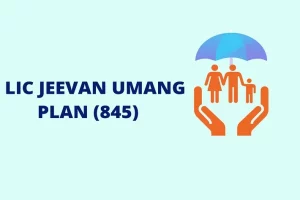Term life insurance is a plan where you can secure your life as well as your family’s so it must know when is the right time to buy a term insurance plan. This plan offers financial coverage to the policyholder and their family for a specific period. In case of the death of the policyholder during the policy terms, the death benefits are paid to the policyholder’s family by the payee.
Term life policy offers up to 30 years of life insurance coverage that can be paid in short-term debts when the policyholder passes away. As per section 10D of the Income Tax Act, the amount paid by the payee on maturity or upon the policyholder’s death is tax-free. The best age limit to choose a term policy is your early 20s, where you can easily select 40 40-40-year plan for your safety.
What is a Term Insurance Plan?
Term insurance is a type of life insurance designed to offer financial security to the policyholder’s family. In the event of the policyholder’s untimely demise during the policy’s duration, the chosen plan specifies a death benefit that is given to the nominated beneficiary.
For instance, a healthy, non-smoking male has the option to purchase Rs. 1 crore coverage for his family over the next 12 years through a term insurance plan. To acquire this coverage, he would make monthly payments of Rs. 525, excluding any applicable taxes.
Read More: 10 Best Cashless Health Insurance Policies in India
What is the Right Age to Buy a Term Insurance Plan in India?
It is the most common question that people ask before buying a term plan. Many people need to know the benefits of buying a term insurance plan at a young age, and they think that 30 is the best age to buy a term life insurance plan. However, this is just a misconception, and one should purchase term plans at an early age. However, it is a known fact that only some people have the same income. Hence, when many people start earning, they may need more funds to buy a term plan. Keeping this in mind, mentioned below are various age stages at which people can buy the best term plans online.
1. In the Early 20s
Early 20s is the best age when one can buy a term life insurance plan. It is the age when many people graduate from college and start earning money. Early 20s is the best age when one can buy a term life insurance plan. It is the age when many people graduate from college and start earning money.
Moreover, in the present times, many people get married in their late 20s or early 30s and hence do not have any additional financial burden on their shoulders. They can easily set aside a small portion of their income to pay the premium. Remember, the earlier you buy the term plan, the lower the tip will be. There are several reasons why you may have to pay a higher premium when purchasing term life insurance.
2. Late 20s or Early 30s
The late 20s or early 30s are usually the time when people get married and enter a new phase of their lives. Therefore, to secure the future of your children as well as your spouse, this is the best time to buy a term life insurance policy.
Since people have just started their married life, they do not have children, and expenses are also less. At this point, people can easily withdraw funds for these term plans, and they can also avail of various tax benefits under Section 80C of the Income Tax Act 1961.
3. For Youth
This particular stage of your life is where your responsibility as a parent increases. Children’s education, extra-curricular activities, other miscellaneous expenses, and medical expenses are in the spotlight. This is where you think about protecting your family and making sure they are financially secure after your death. Your long-term debts must be covered, and with the added responsibility, you will need to firmly protect yourself and your family with a policy with a high protection term.
Read More: Things to Keep in Mind Before Buying a Life Insurance Policy
Why is it Better to Buy a Term Life Insurance Policy at an Early Age?
A term Life Insurance Policy is specifically a protection net for you and your family. This plan offers full assurance to the family of the policyholder in case of the demise of the client.
Getting a term life insurance policy at an early age can be profitable for the policyholder or their family. The main reason people choose this term of insurance policy at an early age is because of the low premiums.
For example, if a client takes up a term life insurance policy at the age of 20, then they claim to pay smaller premiums than the other premiums.
How Long Should You Keep Term Life Insurance?
While purchasing a term life insurance policy, you should always check the terms of these plans. It is always better to take a term insurance policy for a long term rather than a short duration as long-term goals ensure protection for you and your loved ones till the time of retirement.
Since 60 to 65 years is the average retirement age in our country, you can set these numbers as the benchmark age and look for plans that provide coverage for a more extended period.
Conclusion
It is always advisable that you take a term insurance plan at an early age. It helps you to protect yourself and your loved ones at a more nominal amount of monthly, annual, or quarterly premium. Apart from this, you should also evaluate the needs and requirements of your family and see which policy can provide them with maximum benefits.
When is the Right Time to Buy a Term Insurance Plan – FAQs
Why is term life insurance necessary for people?
Ans. As we can’t predict the future or ourselves, for the safety and security of your family. It’s vital to add these term life insurance policies as your safety net after you die for your loved ones.
What are the eligibility criteria for the term life insurance policy?
Ans. The best age to get this policy is from the early 20s. It will give a beneficial premium rate to the policyholder for monthly or yearly incomes.










